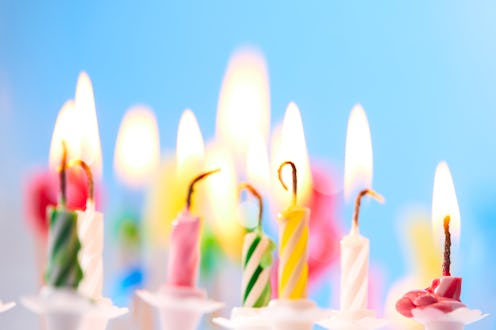
An awful lot of famous people have died on their birthdays: Shakespeare, Betty Friedan, Ingrid Bergman, Machine Gun Kelly… the list goes on. But does that actually mean that people in general are more likely to die on their birthdays? According to a new study, the answer is actually yes. Interesting, no?
The study was conducted by Pablo Pena of the University of Chicago; he plans to publish his research in the February 2015 issue of the journal Social Science & Medicine. According to the Washington Post, here’s how it went down:
Pena got a hold of the Social Security Administration records for 25 million people who died between the years of 1998 and 2011. As WaPo notes, the records themselves don’t give you anything but numbers — they don’t, for example, “provide information on the cause of deaths or characteristics of the departed” — but they do bring a few patterns to light. It turns out that the largest age group more likely to die on their birthdays — by 25.49 percent — are those in the 20 to 29 range; at 23.6 percent, the 30-to-39 age group is relatively closely behind. Head on over to WaPo for a handy graph showing how the percentages stack up for each age group according to decade — but for the curious, the main take away is that every other group above and below those in their 20s and 30s show lower percentages arrange roughly in a curve. Why does that curve exist? Pena speculates that it might be “a sign of birthday celebrations gone wrong.” So, uh… maybe take it easy on your birthday this year if you’re between the ages of 20 and 39? Or something?
The good news, though — insofar as information about our inevitable ends can be considered good news — is that this probability is slightly lower than a similar study found a few years ago. In 2012, research published in the Annals of Epidemiology found that people over 60 were 14 percent more likely to die on their birthday; additionally, heart attacks and strokes (although, as The Mary Sue noted at the time, not necessarily fatal ones) were up 18.6 percent and 21.5 prcent on birthdays. Suicides were also found to be more likely to occur on birthdays (34.9 percent), as were falls (44 percent).
But as always, what we don’t know (yet!) is what factor or factors might account for this change. It’s worth noting that Pena’s sample size was, according to him, about 10 times larger than the 2012 one, which almost certainly had something to do with it; he also wrote, however, that more research is required to figure out why the link between birthdays and deaths exist. I’ll be waiting for that study to emerge — I’m weirdly fascinated by the whole thing, and I’d love to see what else they find.
In the meantime, though, know that if I die on my birthday, I’m totally coming back Hogwarts ghost-style and planning the death day party to end all death day parties. What better way to cope with it than with a shindig of epic proportions?